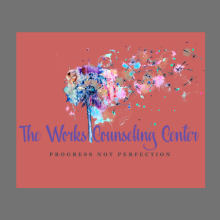Let Us Now Praise Famous Women
James Agee wrote a book in 1941 titled “Let Us Now Praise Famous Men”, with photographs by Walker Evans. They documented the lives of migrant workers during the Great Depression. That title popped into my head as I realized that March is National Women’s History Month. I do enjoy learning about important men and women in the history of our profession. Rather than highlight a famous mental health professional I’d like to share with you a bit about two women who impacted my development as a therapist. These important people in my life are most likely not well known nationally or internationally. But to me, they embody everything that is good about our profession. I would love to “Praise” these women who are famous to me.
One of my early mentors was Dr. Lisa Alex at the Northwest Community Mental Health Center in Memphis. Lisa was compassionate, patient, and a skilled clinician. Our clients were typically low-income, with a long history of struggling with mental illness. It was a difficult population to work with in many respects. While some practitioners may develop a hardened approach to working with these clients, Lisa was always willing to look at the clients’ strengths rather than deficits, projecting an optimism that these clients desperately needed. I was able to observe her work with some unstable and difficult clients. My most memorable consultation with her involved my work with a client struggling with Bipolar Disorder. Our work together had stalled and I was having a hard time focusing our sessions. I met with Lisa and she suggested referring him to a therapeutic group where he could get feedback from other group members as well as from the therapist. When I met with him to present this shift in treatment, he did not handle it well. He became agitated, threatening, and loud. I was able to remain calm, empathic, and used the broken record technique to reinforce the change in treatment. The client ran out of steam, became tearful, and said that he loved me and didn’t want our sessions to end. It was a draining session as I thanked him for his thoughts about our work together and helped him accept joining group therapy. Naturally, when that session was over I went straight to Lisa’s office. “Thanks for that advice! He went ballistic!” Then I described what happened. Lisa was calm, accepting, and said, “I knew you could handle it. It’s okay. He needs to be in that group and it’s going to help him.” She helped me shift my focus from my own discomfort to the well-being of the client. Her faith in me allowed me to work through and process a difficult situation. I began to develop confidence in myself as a counselor.
During my doctoral internship at the University of Pittsburgh’s counseling center, one of my supervisors was Dr. Carol Elkenberry. We were assigned supervisors and I had no idea what Carol would be like. I loved her calming presence, insightful comments, and patience with a novice counselor. My other individual supervisor (we were assigned two) believed in short-term therapy, even one session therapy (I know, I know, it’s difficult to even write that, but this is what he believed). She believed in the counseling process, focused more on long-term therapy. I loved that approach as it shook me out of a symptom-oriented, short-term focus. The counseling relationship became relevant to me through her guidance and I learned the benefit of going on an extended counseling journey with a client. During our supervision sessions, Carol would give me a stack of yellow legal-sized pages full of her detailed comments on the recorded session of mine for that week. I still have them. Her comments are great, so insightful in that they focus as much on the experience of being with the client as they do on the tangible issues the client brought to the session. Carol encouraged me to be honest about my own reactions to clients and to process them. One note she wrote about one of my clients sticks with me: “This client is so difficult to like. You’re doing a great job connecting with her.” It was so refreshing to learn that counselors could be humans and not just empathy robots. Carol wanted me to recognize that a counseling relationship is a relationship, involving the thoughts, feelings, and experiences of two people. She showed me the value of self-reflection as a counselor, to monitor not just the counseling techniques I used with a client and their impact, but also to pay attention to my emotional reactions and connections with my clients. I remember working with Carol on developing and conducting a support group for “creative and unconventional people”. Later Carol authored several books on the subject.
Lisa and Carol are enduring influences on me as a person, counselor, and counselor educator. Take time this month to reflect on the important women in your own professional journey, those exceptional female counselors who helped you develop and deserve your praise. If you feel moved to do so, share your stories here, either in the comments or by writing your own blog post.
David Dietrich, Ph.D.
Associate Professor
Coordinator, Master's Program in Counseling
[email protected]









